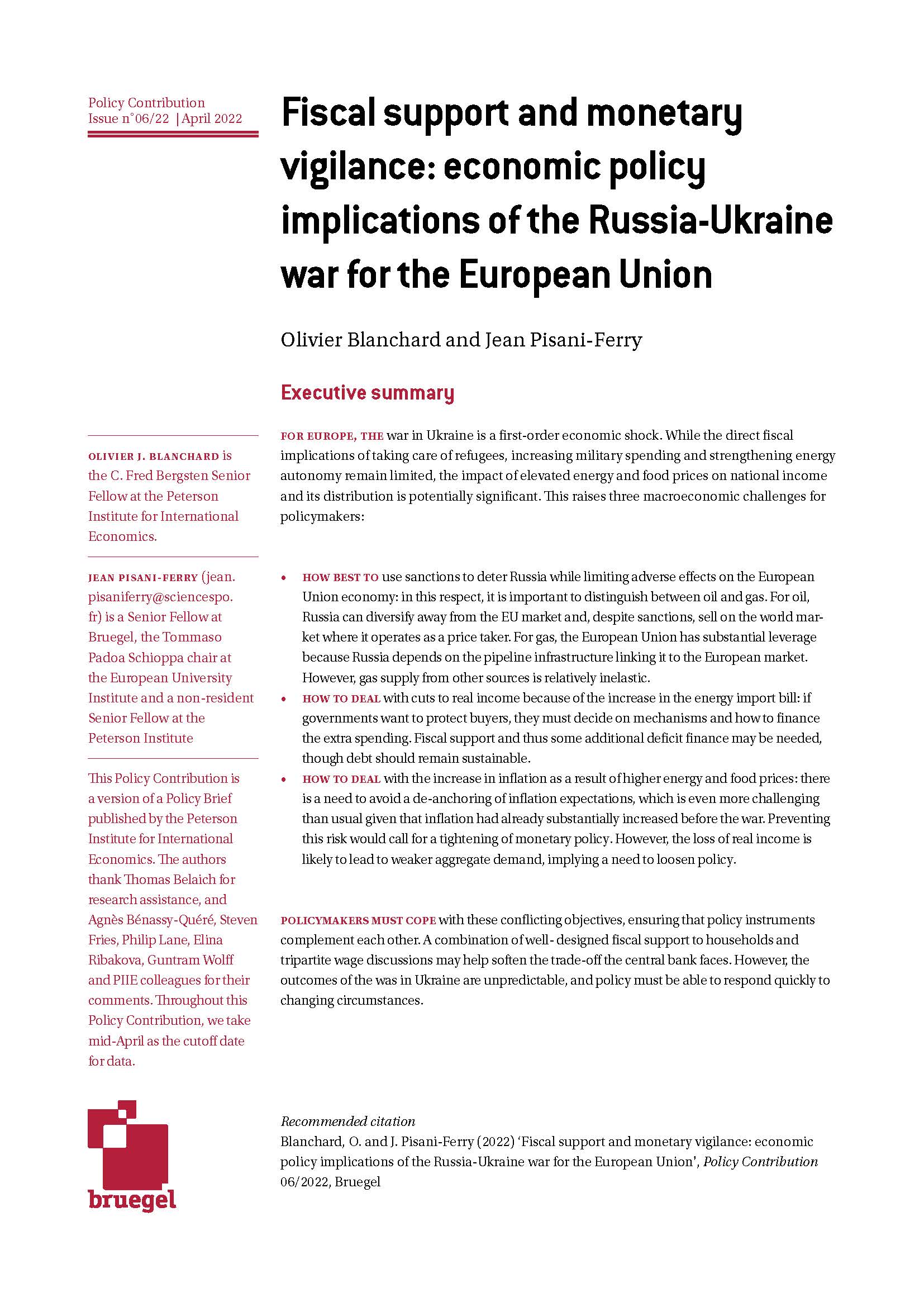Policy Contribution
Fiscal support and monetary vigilance: economic policy implications of the Russia-Ukraine war for the European Union
Policymakers must think coherently about the joint implications of their actions, from sanctions on Russia to subsidies and transfers to their own citizens, and avoid taking measures that contradict each other. This is what we try to do in this Policy Contribution, focusing on the macroeconomic aspects of relevance for Europe.
This Policy Contribution is a version of a Policy Brief published by the Peterson Institute for International Economics. The authors thank Thomas Belaich for research assistance, and Agnès Bénassy-Quéré, Steven Fries, Philip Lane, Elina Ribakova, Guntram Wolff and PIIE colleagues for their comments. Throughout this Policy Contribution, we take mid-April as the cutoff date for data.
For Europe, the war in Ukraine is a first-order economic shock. While the direct fiscal implications of taking care of refugees, increasing military spending and strengthening energy autonomy remain limited, the impact of elevated energy and food prices on national income and its distribution is potentially significant. This raises three macroeconomic challenges for policymakers:
- How best to use sanctions to deter Russia while limiting adverse effects on the European Union economy: in this respect, it is important to distinguish between oil and gas. For oil, Russia can diversify away from the EU market and, despite sanctions, sell on the world market where it operates as a price taker. For gas, the European Union has substantial leverage because Russia depends on the pipeline infrastructure linking it to the European market. However, gas supply from other sources is relatively inelastic.
- How to deal with cuts to real income because of the increase in the energy import bill: if governments want to protect buyers, they must decide on mechanisms and how to finance the extra spending. Fiscal support and thus some additional deficit finance may be needed, though debt should remain sustainable.
- How to deal with the increase in inflation as a result of higher energy and food prices: there is a need to avoid a de-anchoring of inflation expectations, which is even more challenging than usual given that inflation had already substantially increased before the war. Preventing this risk would call for a tightening of monetary policy. However, the loss of real income is likely to lead to weaker aggregate demand, implying a need to loosen policy.
Policymakers must cope with these conflicting objectives, ensuring that policy instruments complement each other. A combination of well- designed fiscal support to households and tripartite wage discussions may help soften the trade-off the central bank faces. However, the outcomes of the war in Ukraine are unpredictable, and policy must be able to respond quickly to changing circumstances.
Recommended citation
Blanchard, O. and J. Pisani-Ferry (2022) ‘Fiscal support and monetary vigilance: economic policy implications of the Russia-Ukraine war for the European Union’, Policy Contribution 06/2022, Bruegel












